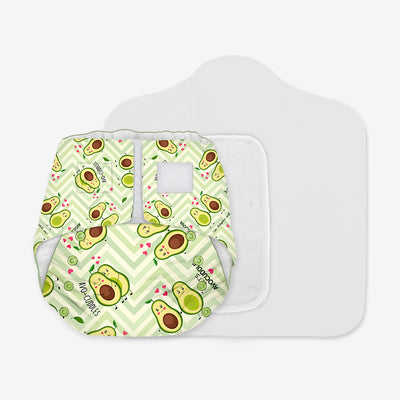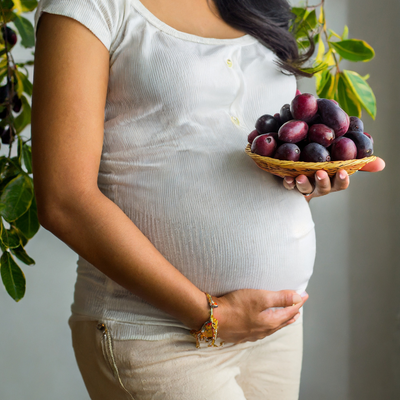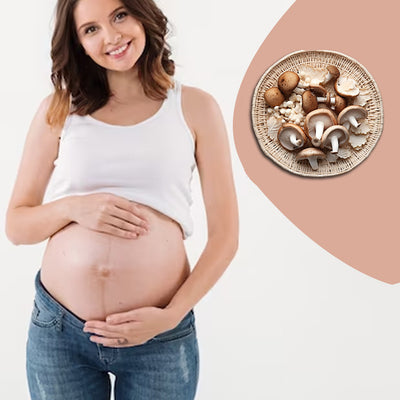Benefits Of Flaxseeds During Pregnancy

Eating Flaxseeds During Pregnancy
In the realm of nutrition, there are certain superfoods that stand out for their exceptional health benefits, and flaxseeds undoubtedly earn a top spot on that list. These tiny, golden-brown seeds may seem unassuming at first glance, but don't let their size fool you; they pack a powerful punch when it comes to boosting your overall well-being. From improving heart health to supporting digestion and even aiding weight management, flaxseeds are a nutritional powerhouse that can easily be incorporated into your daily diet. In this blog, we'll delve into the myriad benefits of consuming flaxseeds and explore why they deserve a permanent place on your plate. So, whether you're a health enthusiast looking to optimize your diet or simply someone curious about enhancing your wellness journey, read on to discover why flaxseeds should be a staple in your daily nutrition regimen.
Nutritional Value of Flaxseeds
Flaxseeds are a nutritional powerhouse, packed with essential nutrients that can benefit your overall health. These tiny seeds are an excellent source of omega-3 fatty acids, fiber, and lignans, a type of antioxidant. Additionally, they contain protein, vitamins, and minerals, making them a versatile and nutrient-dense addition to any diet. Let's explore the impressive nutritional profile of flaxseeds and how they can contribute to your well-being.
Safety of Consuming Flaxseeds During Pregnancy
Pregnancy raises questions about dietary choices, and flaxseeds are no exception. The good news is that, in moderation, flaxseeds can be a safe and beneficial addition to a pregnant woman's diet. Rich in omega-3 fatty acids and fiber, flaxseeds can support maternal health and fetal development. However, it's crucial to consult with a healthcare professional to ensure personalized advice based on individual health conditions during pregnancy.
Can You Take Flaxseed Oil During Pregnancy?
Flaxseed oil, derived from flaxseeds, is often touted for its health benefits due to its high omega-3 fatty acid content. While omega-3 fatty acids are essential for fetal brain and eye development, the safety of flaxseed oil during pregnancy is debated. Some studies suggest potential benefits, including reducing the risk of preterm birth and improving maternal health. However, others raise concerns about possible hormonal effects and the risk of premature labor. Therefore, pregnant individuals should exercise caution and consult with their healthcare provider before incorporating flaxseed oil into their prenatal regimen.
Benefits of Consuming Flaxseeds for Pregnant Women:
Omega-3 Fatty Acids:
Flaxseeds are rich in alpha-linolenic acid (ALA), a type of omega-3 fatty acid crucial for fetal brain and eye development. Including flaxseeds in the diet can help support the healthy growth and development of the baby.
Fiber Content:
Pregnancy often comes with digestive issues like constipation. Flaxseeds are high in fiber, promoting regular bowel movements and alleviating constipation discomfort for expecting mothers.
Lignans:
Flaxseeds contain lignans, which have antioxidant properties. These compounds may help reduce the risk of pregnancy-related complications, such as preeclampsia, by supporting overall maternal health.
Hormonal Balance:
The lignans in flaxseeds may also help regulate hormonal balance during pregnancy, potentially easing symptoms like mood swings and hormonal fluctuations.
Nutrient Boost:
Flaxseeds are packed with essential vitamins and minerals, including vitamin B6, folate, magnesium, and zinc, which are vital for both maternal and fetal health during pregnancy.
Side Effects of Eating Flaxseeds
While flaxseeds offer numerous health benefits, consuming them in excessive amounts or without proper precautions can lead to certain side effects. Here are some potential side effects of eating flaxseeds:
Digestive Issues:
Flaxseeds are high in fiber, which can cause digestive discomfort such as bloating, gas, and diarrhea, especially if consumed in large quantities or without adequate water intake.
Allergic Reactions:
Some individuals may be allergic to flaxseeds, experiencing symptoms like itching, hives, or difficulty breathing. Allergic reactions to flaxseeds are rare but can be severe in sensitive individuals.
Hormonal Effects:
Flaxseeds contain compounds called lignans, which mimic estrogen in the body. While this can have benefits for hormonal balance in moderate amounts, excessive consumption may disrupt hormone levels, particularly in individuals with hormone-sensitive conditions like breast cancer.
Potential Interactions with Medications:
Flaxseeds may interact with certain medications, including blood thinners and hormone therapy drugs, affecting their effectiveness or increasing the risk of side effects. It's essential to consult with a healthcare provider before consuming flaxseeds if you are taking any medications.
Cyanogenic Glycosides:
Flaxseeds contain small amounts of cyanogenic glycosides, which can release cyanide when metabolised. While the levels are typically low and not harmful in normal dietary intake, excessive consumption of raw or unripe flaxseeds may pose a risk.
FAQ
1. Are flaxseeds safe to eat during pregnancy?
Answer: Yes, in moderation. Flaxseeds are rich in nutrients beneficial for both maternal and fetal health, but consult your healthcare provider before adding them to your diet.
2. Can flaxseed oil be taken during pregnancy?
Answer: It's debated. While flaxseed oil contains omega-3 fatty acids crucial for fetal development, consult with your doctor due to potential hormonal effects and premature labor concerns.
3. How much flaxseed can I consume daily while pregnant?
Answer: Around 1-2 tablespoons of ground flaxseeds per day is generally safe for most pregnant women, but individual tolerance may vary.
4. Are there any risks associated with eating flaxseeds during pregnancy?
Answer: Excessive consumption may lead to digestive issues or hormonal imbalances, so it's essential to consume flaxseeds in moderation and monitor for any adverse reactions.
5. Can flaxseeds help with pregnancy-related constipation?
Answer: Yes, flaxseeds are high in fiber, which can alleviate constipation discomfort during pregnancy. Ensure adequate water intake when consuming flaxseeds to support digestion.














